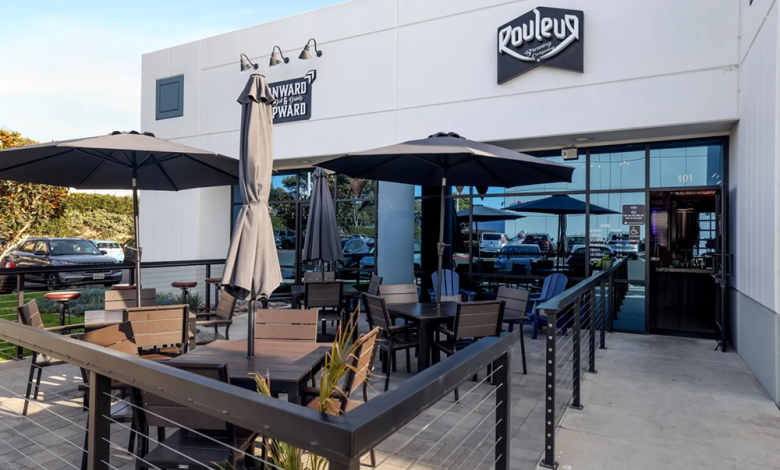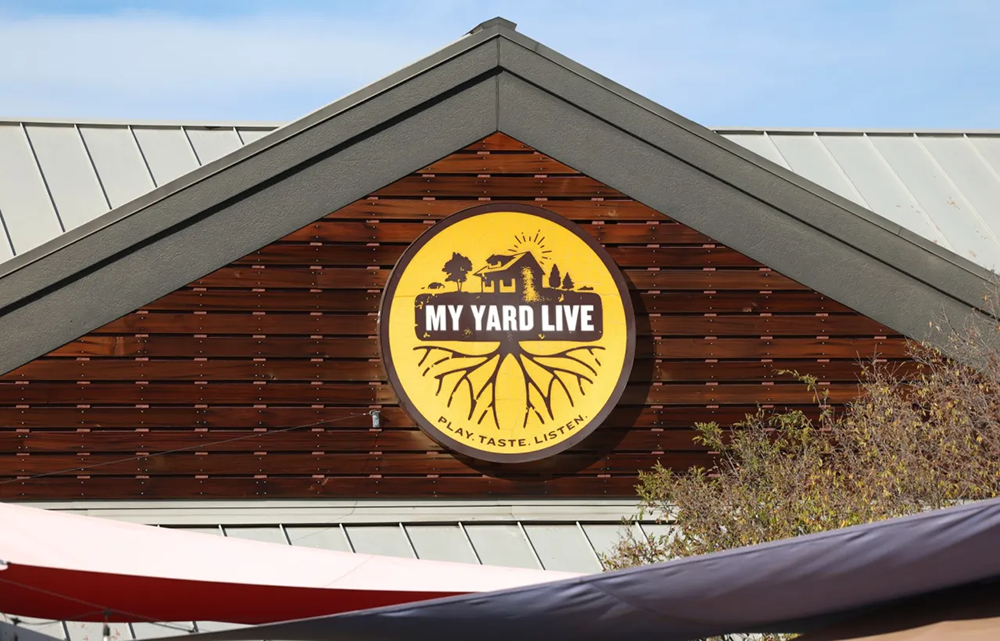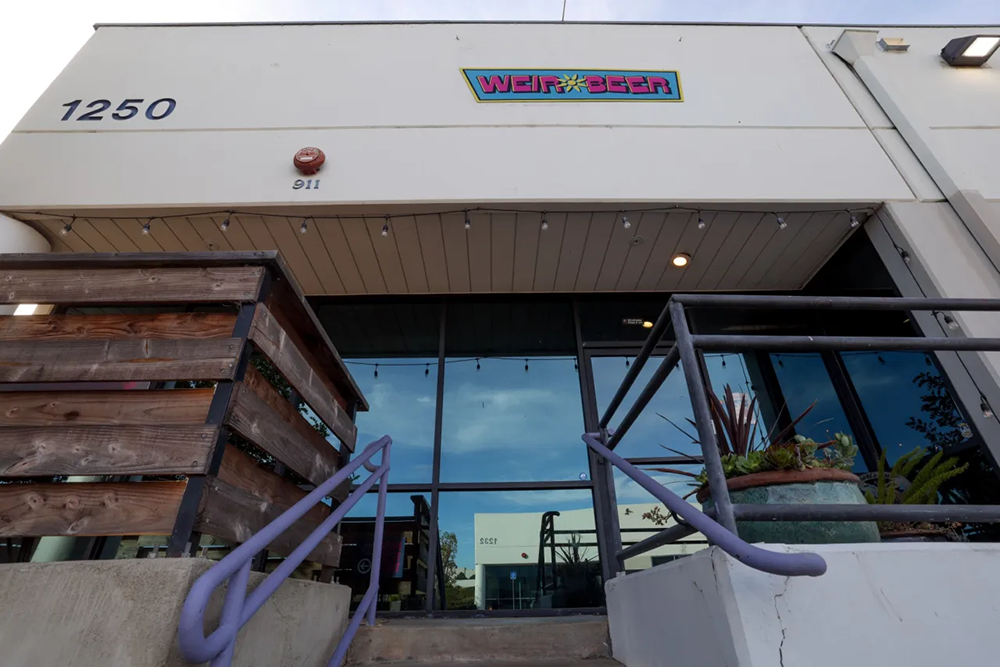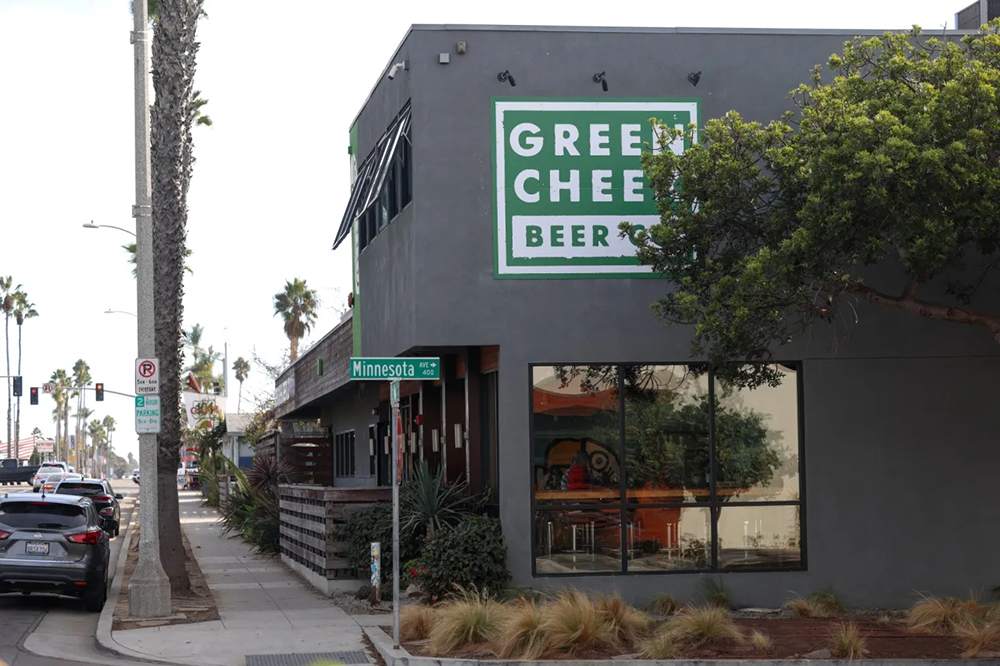
Prior to the pandemic, San Diego’s world-renowned craft brewing industry started to show signs of strain. At the time, the county was bursting at the seams with a record-high 170 beer companies operating more than 230 manufacturing facilities and public venues. In addition to unprecedented competition, demand for craft beer was beginning to decline as consumers discovered alternative alcoholic beverages such as hard seltzer and traded in caloric consumables for recently legalized cannabis products.
While some brewing companies faltered or failed, most business owners in the craft beer space were able to assess and adjust their operations to cope with a changing customer base and market. That all changed when COVID-19 hit U.S. shores. Initial state-mandated shutdowns and stay-at-home orders tilted the industry on its head, but buoyed by government assistance, brewery owners and their personnel found innovative ways to carry on. Unfortunately, that was just the beginning.
The pandemic added to brewing companies’ problems while depleting funds and human resources, and accelerated the business environment, forcing beer concerns to adapt at a rapid, perpetual pace or die. That challenging, high-pressure climate has persisted to present day. Resultantly, more San Diego County brewing companies and brewery-operated venues shuttered in 2024 than any previous year.
Eleven companies went out of business, with four doing so in just the past six weeks. Such a glut is not uncommon. Year’s end is when owners in crisis must make the decision to fish or cut bait as they stare down the barrel of the three slowest months for beer sales: January through March. In 2023, six brewing companies closed, went on the market or sold between October and December.

Of last year’s closures, seven were headquartered in North County (with three of them in San Marcos) and five had been in business for 10 or more years. As it turns out, many of the same factors that are making life increasingly difficult for everyday Americans are making it impossible for even the stalwarts of the local beer industry to survive.
“The most common reason breweries cite when shuttering their businesses is the increased cost of doing business. We see how expensive things have gotten even in our own households and it’s been no different for businesses,” says Erik Fowler, executive director of the San Diego Brewers Guild, a nonprofit trade organization representing dues-paying brewing companies throughout the county. Costs have risen drastically, particularly for internationally imported items such as grains, hops and the aluminum used to produce cans, the now nearly universal form of beer packaging.
“We’ve also seen real-estate prices skyrocket,” says Fowler. “A lot of breweries that opened seven to 10 years ago are coming to the time to renew their leases, and they can’t take the burden of increased rent.”
When the craft beer industry was surging in the first half of the 2010s, landlords were accommodating, some going so far as to refashion properties to appeal to brewing companies looking to start up or expand their operations. Business was booming and, in addition to being safe bets as upstanding, rent-paying tenants, breweries tended to help attract other thriving operations to neighboring suites in retail centers and industrial complexes.
Whereas there was once an abundance of entrepreneurs looking to get into the beer industry, fewer are looking to do so, even in a buyer’s market. Of the 11 brewing facilities that were publicly put up for sale in 2024 (there are more that have clandestinely been shopped by their owners and real-estate agents), only four have been taken over. In all but one case – Vista’s Helia Brewing being supplanted by newcomer Weir Beer Co. – those businesses were snatched up by large companies.

Meanwhile, at least a half-dozen brewery owners who want desperately to cut losses and move on have been unable to. In some cases, it is out of their control. At least two of the operations currently on the market have secured buyers only to have their landlords nix would-be deals, leaving those brewery owners to slog forth in hopes of finding an exit, doing their best to minimize the bleeding along the way as they deal with the industry’s universal challenges, chief of which is their very own customers.
“We are seeing changes in consumption patterns. Every few years, preferences shift and right now we’re seeing younger generations lean away from beer as a whole,” says Fowler. “That being said, these changes are measured as small percentages, but it has halted the double-digit growth craft beer saw for nearly a decade. That makes it seem starker than it is.”
The past year did present a number of positives, with established operations such as Burgeon Beer Co., Gravity Heights, North Park Beer Co., Pizza Port and Resident Brewing opening new locations. Even Karl Strauss Brewing, which shut down its underperforming San Marcos beer garden concept, The Outpost, opened a new brewery-restaurant in Corona the following month. Additionally, twice as many new brewing companies opened in 2024 (six) than 2023 (three), not counting at least one new contract-brewed beer brand that also made it to market.
Fowler offers those looking to join the local brewing industry a piece of familiar advice: location, location, location.
“Most brewery models are designed to lead with taproom sales. Community is the most beautiful part of craft beer, so this is no surprise, but we’ve seen a lot of breweries open in industrial areas somewhat removed from the communities they’d like to serve. While it makes sense from a brewing and manufacturing standpoint, breweries are much more likely to succeed if they’re in close proximity to neighborhoods and suburbs.”
On top of finding an ideal home, Fowler touts the importance of making that place homey, saying consumers want a comfortable or cool place to hang out with added value like entertainment or activities. In the case of brewing companies focused on distributing beer versus bringing the public to their homebases, presenting a unique brand and point of view can help set them apart. And, of course, establishing reasonable price points that position a business well in relation to its competitors is always key.
It is important to note that San Diego County is still home to well over 200 different brewery-owned venues, far more than most locales (and any U.S. county according to several sources). Going beyond sheer quantity, many of those operations are award-winning and known throughout – and beyond – the country. This is still, as the San Diego Brewers Guild has trademarked it, the “Capital of Craft.”
2024 Brewing Company & Venue Closures
The following is a breakdown of the San Diego County businesses and venues that closed or went up for sale during calendar year 2024.
Went Out of Business
- Amplified Ale Works, Pacific Beach *
- Bagby Beer Co., Oceanside *
- Border X Brewing, Barrio Logan *
- Double Peak Brewing, San Marcos
- Helia Brewing, Vista
- Jacked Up Brewery, Escondido
- My Yard Live Beer Co., San Marcos
- One Season Brewing, Grantville
- Rip Current Brewing, San Marcos *
- Rough Draft Brewing, Miramar *
- Rouleur Brewing, Carlsbad
* Business that was open for 10 or more years
Remain for Sale Publicly
- Amplified Ale Works, Pacific Beach
- Ataraxia Ale Works, Kearny Mesa
- Bolt Brewery & Beer Garden, La Mesa
- Double Peak Brewing, San Marcos
- Five Suits Brewing, Vista
- Quantum Brewing, Kearny Mesa
- Rouleur Brewing, Carlsbad
Taken Over by Another Brewing Company

- Bagby Beer Co. taken over by Green Cheek Beer Co.
- Ballast Point Brewing in Miramar taken over by Athletic Brewing *
- Helia Brewing taken over by Weir Beer Co.
- The Lost Abbey Brewing in San Marcos taken over by Pizza Port Brewing **
- Rip Current Brewing in San Marcos taken over by Craft Coast Beer & Tacos ***
- Rough Draft Brewing taken over by Mission Brewing
* Ballast Point maintains the operation of an on-site bar and restaurant at its former Miramar headquarters
** Takeover resulted from a business restructure versus a sale
*** Craft Coast took over Rip Current’s San Marcos headquarters in 2023 but didn’t open it until 2024
Venues that Closed
- Bolt Brewery & Beer Garden, La Mesa
- Ebullition Brew Works, Carlsbad
- Eppig Brewing Taproom, East Village
- Karl Strauss Brewing – The Outpost, San Marcos
- Little Miss Brewing, Miramar *
- Modern Times Beer – Lomaland Fermentorium, Point Loma **
- Thorn Brewing, Mission Hills
- WestBrew, Del Mar
- WestBrew, East Village
* Little Miss moved its headquarters from Miramar to a new facility in Logan Heights
** Modern Times’ beers are now contract-brewed at AleSmith Brewing in Miramar
A version of this article originally appeared in the Business section of the Friday, January 3, 2025 edition of The San Diego Union-Tribune

